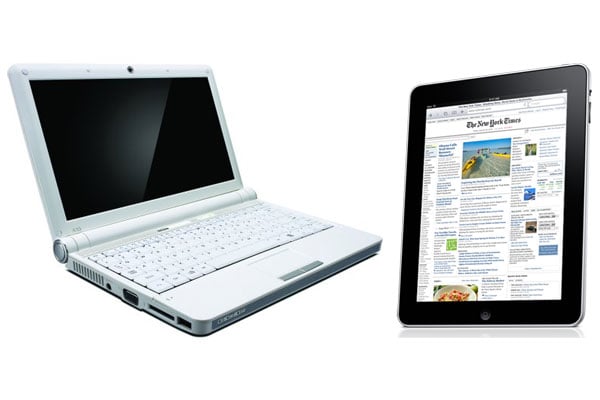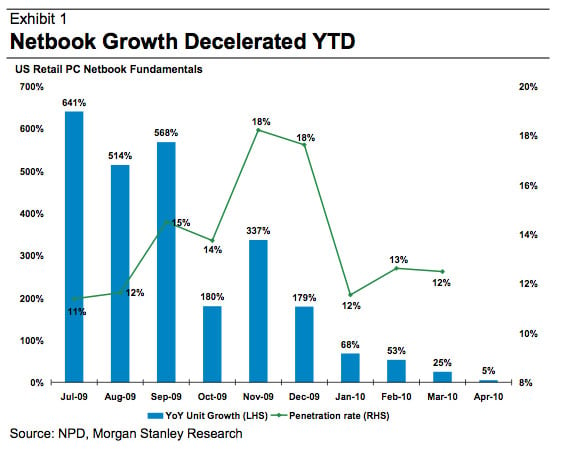Netbooks have become hugely popular since ASUS released the first one a couple of years ago. They have seen massive growth over the last few years, and now it looks like that may be about to change. This shift is mainly attributed to the introduction of the Apple iPad.
Analysts at Morgan Stanley have been researching netbook sales, and it appears that they have started slowing down since January, when Apple announced the iPad.


The Rise and Fall of Netbooks
Last summer, netbook sales were up 641 percent over the previous year, showcasing their immense popularity. These compact, lightweight laptops were favored for their affordability and convenience, making them a go-to choice for students, professionals, and casual users alike. However, since January, netbook sales have been declining, and this trend has accelerated more rapidly since April when the Apple iPad went on sale.
The main reason people purchased netbooks was so they could surf the web, check their email, and complete basic tasks on the go. All of these activities can be done on the iPad, which is not only more portable but also offers a more intuitive touch interface. The iPad’s sleek design, longer battery life, and vast ecosystem of apps have made it an attractive alternative to netbooks.
The Impact of Tablets on the Market
The introduction of the iPad has not only affected netbook sales but has also spurred other manufacturers to enter the tablet market. In 2010, several companies, including Samsung, HP, and Dell, announced their own tablet devices, aiming to capture a share of this burgeoning market. These tablets, like the iPad, offer similar functionalities but come with various features and price points, providing consumers with a wide range of options.
For instance, Samsung’s Galaxy Tab series has been well-received for its Android operating system and compatibility with Google services. HP’s TouchPad, although short-lived, introduced webOS to the tablet market, while Dell’s Streak offered a unique blend of smartphone and tablet features. These alternatives have contributed to the growing popularity of tablets, further impacting netbook sales.
The shift from netbooks to tablets can also be attributed to the changing needs and preferences of consumers. Tablets offer a more versatile and engaging user experience, with features such as touchscreens, high-resolution displays, and access to a vast array of apps and multimedia content. Additionally, tablets are often lighter and more portable than netbooks, making them ideal for on-the-go use.
Moreover, the rise of cloud computing and online storage solutions has diminished the need for traditional laptops and netbooks. Users can now access their files, documents, and applications from any device with an internet connection, reducing the reliance on physical storage and computing power.
The introduction of the Apple iPad has significantly impacted the netbook market, leading to a decline in sales and a shift towards tablets. As more manufacturers release their own tablet devices, this trend is expected to continue, further reducing netbook sales. The changing needs and preferences of consumers, coupled with advancements in technology, have paved the way for tablets to become the preferred choice for portable computing.
via Wired
Latest Geeky Gadgets Deals
Disclosure: Some of our articles include affiliate links. If you buy something through one of these links, Geeky Gadgets may earn an affiliate commission. Learn about our Disclosure Policy.